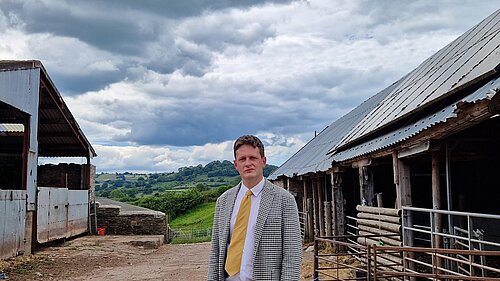MP Highlights Need to Tackle Rural Crime & Antisocial Behaviour

Welsh Liberal Democrat MP for Brecon, Radnor and Cwm Tawe David Chadwick has raised the issue of rural crime with the Minister for Policing in the House of Commons, calling for more to be done to tackle the issue.
During the debate, David Chadwick highlighted data revealed by the Liberal Democrats showing that just 0.24% of staffing resources at Dyfed-Powys police are dedicated to tackling rural crime.
A report by the Countryside Alliance in 2023 found that some 92% of those surveyed from across Wales, said that rural crime was a "significant" issue in their community.
Insurance company NFU Mutual's latest figures estimated the cost of rural crime increased by 4.3% across the UK year-on-year in 2023, to £52.8m.
The survey which was responded to by residents living in Wales also found that 56% did not think the police take rural crime seriously, and 89% had not seen any police officers in their area in the last week.
In February this year, it was reported that more than 70 sheep had been stolen by livestock rustlers from farmland in south Powys near Merthyr Cynog.
David Chadwick called on the Labour Minister to back Liberal Democrat plans to ensure every police force has a specialist coordinator in their rural crime team, following recommendations from The National Rural Crime Network.
David Chadwick also raised the issue of antisocial behaviour with the Minister, highlighting concerns being raised in Brecon and Ystradgynlais over the issue.
In response to the questions, the Minister for Policing Dame Diana Johnson offered to meet with David Chadwick to discuss local concerns.
Commenting after the debate, David Chadwick MP said:
“Rural crime often goes underreported, but can have a devastating impact for the businesses and individuals it impacts.
“Rural crime has huge financial implications, but also leaves a lasting mental impact on those targeted, especially in the case of livestock theft.
“It is important that the new Labour Government ensure that their strategies recognise the complexity and differences in tackling crime and antisocial behaviour in rural areas.”
ENDS

Sign up
for email updates


